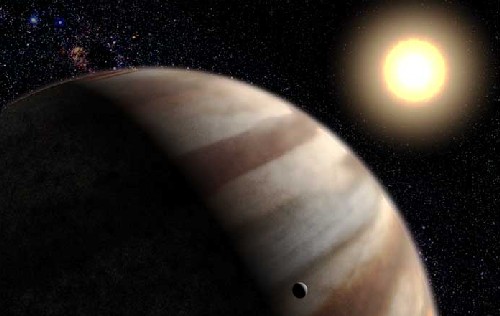
Artist’s Concept — “Hot Jupiter” Around the Star HD 209458 Credit: NASA
By James Dacey
When the European Space Agency (ESA) recently announced the discovery of 32 new exoplanets, it struck me how quickly we can become numbed to the wonders of scientific discovery.
In 1995, astronomers generated a surge of excitement when they discovered the first planet to be orbiting a star other than our Sun. Over the past 14 years, astronomy has entered a dramatic new era with more than 400 of these exoplanets now officially catalogued. The recent launch of NASA’s Kepler mission and with ESA considering its ambitious PLATO project means that we may well have detected thousands of exoplanets within the next few years.
But as the discoveries now come thick and fast, have we becoming a bit blasé about exoplanets?
Well, one researcher in Germany has come up with an idea that could re-inject some of the initial excitement. Wladimir Lyra of the Max Planck Institute for Astronomy is proposing that we give names to the exoplanets based on Roman-Greek mythology thus ditching the dry cataloguing that has led to planet names like MOA-2008-BLG-310-L b.
Of course, the reason why the International Astronomical Union came up with their scientific naming system is because the heavens may well be awash with exoplanets and it would soon become impractical to name every single one of them.
But as Lyra points out, every other class of astronomical body discovered to date has been given a name including the 15, 000 asteroids and minor planets.
“Our place in the cosmos is not special in any way, so there is no reason why only the planetary objects in the solar system should be named,” writes Lyra citing the Copernican Principle.
Lyra’s proposed system would assign names based on the mythological stories of the constellations. For example, the planets in Andromeda will be named after Andromeda’s myth and the planets in Hercules after Hercules’ myth. Inevitably, there are a few caveats to the system, which Lyra explains in his paper on the arXiv preprint server.



